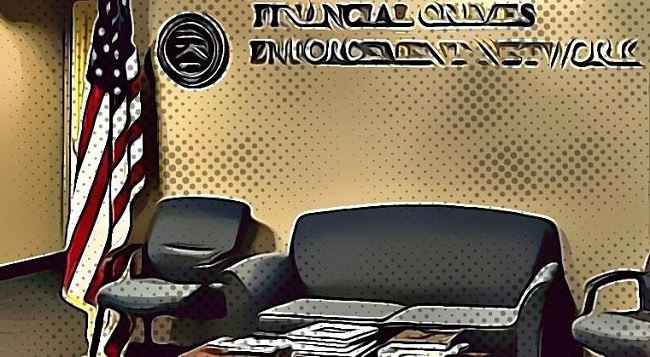- Telecommunications Giant Vodafone Leaves the Libra Association
- Group of Central Banks Assesses Developing Central Bank Digital Currencies
- South Korea Might Impose 20 Percent Tax on Cryptocurrency Profits
- Report: Terrorists Increasingly Use Crypto to Raise Funds Anonymously
- Canadian Securities Administrators Subject Crypto Exchanges to Securities Laws
Violations of Anti Money Laundering Laws Earns Crypto Trader a Penalization from FinCEN

The Financial Crime Enforcement Network of the United States has penalized a “peer-to-peer cryptocurrency exchanger” for breaking anti-money laundering laws. The regulator revealed on Thursday, April 18, that the individual named Eric Powers, a California resident and a cryptocurrency trader, failed to comply with the Bank Secrecy Act’s registration and reporting requirements during 2012-2014.
Money laundering and funding criminal activities have been one of the biggest concerns regarding cryptocurrencies, cryptocurrency traders and crypto exchanges by the mainstream media as well as by those in power.
Over the years, there has been a push towards bringing cryptocurrency exchanges and traders under the shadow of regulations that require better self and government oversight. The purpose of this push, besides to exercise control over the digital assets sector, is to keep a check and balance over who is transferring money to whom and for what purpose. As such, cryptocurrencies allow for the payer and the one getting paid complete anonymity. As one can imagine, that would be catastrophic in terms of controlling the funding of illegal activities and undermine the efforts of the government to curb corruption and money laundering.
This is why the FinCEN opted to punish the negligence of Eric Powers, whether intentional or not. While trading Bitcoin over the internet, Powers failed to register himself as a money transmitter or as a money services business, revealed FinCEN. He did not file a single currency transaction report despite having moved currency worth $10,000 physically in 200 transactions as well as $5 million in Bitcoin (!) through 160 transactions.
The FinCEN also named the now-defunct darknet marketplace, Silk Road, as one of the places where Powers did business and processed several suspicious transactions. However, he once again failed to file a suspicious activity report. The agency also reported the Powers had admitted to these violations.
When talking about the action, FinCEN director Kenneth A. Blanco mentioned that there were clear indicators that Powers was aware of his obligations but willfully chose to ignore them. He expressed his view that regardless of the size of a money transmitter, the BSA obligations apply to them all.
Blanco stated:
“Such failures put our financial system and national security at risk and jeopardize the safety and well-being of our people, as well as undercut responsible innovation in the financial services space.”
As punishment, Powers has been fined $35,000 and barred from providing money transmission services in the future.
Digital favorites
- Siti Di Scommesse
- Casino Bonus Senza Deposito Immediato
- Best Casinos Not On Gamstop
- Casinos Not On Gamstop
- UK Casinos Not On Gamstop
- Non Gamstop Casinos
- UK Casinos Not On Gamstop
- Casino Not On Gamstop
- Non Gamstop Casino
- Slots Not On Gamstop
- Meilleur Casino En Ligne France
- Gambling Sites Not On Gamstop
- オンライン カジノ おすすめ
- Gambling Sites Not On Gamstop
- Non Gamstop UK Casinos
- UK Casino Sites Not On Gamstop
- UK Casinos Not On Gamstop
- Non Gamstop Casinos UK
- Non Gamstop Casino Sites UK
- Best Slot Sites
- UK Online Casinos Not On Gamstop
- Best Non Gamstop Casino
- Best Sports Betting Sites Not On Gamstop
- Meilleur Casino En Ligne
- Migliori Casino Online
- Meilleur Site De Casino En Ligne
- Pari Sportif Belgique
- Siti Casino
- Meilleur Site De Paris Sportif International
- 익명 카지노
- Fm 카지노
- Casino Sans Verification
- Real Money Casino App No Deposit
- Siti Non Aams Bonus Senza Deposito
- Casino Non Aams
- Meilleur Casino En Ligne Belgique
- Site De Poker
- Casino En Ligne 2026
- Meilleur Casino En Ligne 2026
- Casino Online Non AAMS





